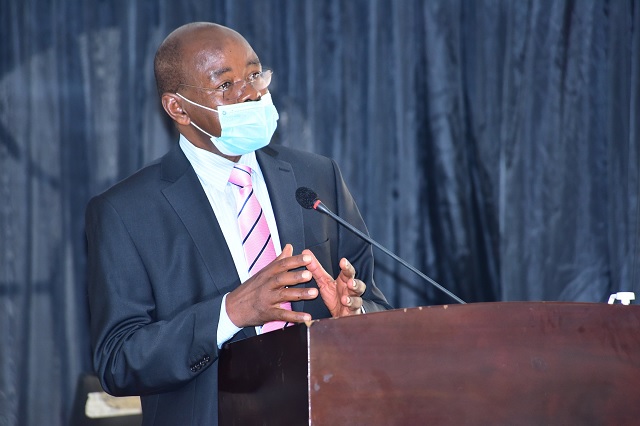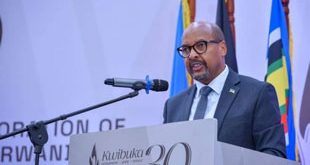
Kampala, Uganda | THE INDEPENDENT | There is no clear work plan for the 200 Billion Shillings that parliament has approved as an appropriation from the Petroleum Fund to partly finance the budget for the coming financial year 2021/2022.
The House chaired by Speaker Rebecca Kadaga on Friday passed a 44.77 trillion Shillings budget for the coming financial year 2021/2022 following the approval of the Appropriation Bill, 2021.
The other sources of funding for the budget are the planned collection of 22.63 trillion Shillings with over 20.83 trillion coming from tax revenue and others.
Section 59 (3) of the Public Finance Management Act, 2015 (PFMA), provides that petroleum revenue is to be used to finance infrastructure and development projects only.
However, this has not been clearly stated in regards to the 200 billion Shillings allocated and meant for financing the oil roads, according to parliament’s Budget Committee chairperson Amos Lugoloobi.
He adds that no work plan for the funds was attached to support the expenditure also noting that during the financial year 2019/2020, the Bank of Uganda did not receive a cash flow plan and the money was withdrawn in a lump sum.
This is contrary to section 59 (5) of PFMA which states that funds to the Consolidated Fund from the Petroleum Fund shall be withdrawn quarterly following the annual cash flow plan of the government.
As of July 1st, 2019, the opening balance on the Petroleum Fund was US Dollars 74.82 million and 28.22 billion. During the year, the inflows were US Dollars 1.56 million and 35.60 billion Shillings.
“In the National Budget for Financial Year 2019/2020, Parliament appropriated 445 billion Shillings from the Petroleum Fund to the Consolidated Fund. However, only 255 billion Shillings equivalent to US Dollars 69.95 million of the amount appropriated was transferred to the Consolidated Fund to finance the 2019/2020 budget,” Lugoloobi told parliament.
He adds that the closing balance in the Petroleum Fund accounts as of June 30th, 2020, was US Dollars 6.42 million and 63.82 billion Shillings.
This revealed status of the Petroleum Fund follows an earlier Budget Committee report to parliament in 2019 in which the House tasked the government to put in place a Petroleum Investment framework to guide the investment of funds from the Petroleum Revenue Investment Reserve.
This followed a report indicating that the Petroleum Fund was not growing because funds therein were used to finance the national budget contrary to provisions of the Public Finance Management Act. It was also reported that the government had not put in place a Petroleum Investment Framework as envisaged in the law.
The Public Finance Management Act 2015 provides that for the avoidance of doubt, petroleum revenue shall be used for the financing of infrastructure and development projects of government and not the recurrent expenditure of the government.
The committee then cautioned the government to contain its appetite for the oil funds before production kicks off citing depletion of resources in the Petroleum Fund with no clear indication on what the money is spent on.
Auditor General John Muwanga in his previous audit report submitted to Parliament noted that there was no explicit mention of the Fund as the source of funds but rather was disguised as Medium-Term Expenditure Framework for the financial years 2015/2016 to 2021/2022 submitted to Parliament.
Recently, Accountant General Lawrence Semakula was quoted in the media defending the continuous raid on the Petroleum Fund to finance the national budget saying that it does not make sense to keep money in the Fund lying idle yet they have a deficit.
Semakula reportedly said that when Uganda eventually starts commercial oil production, the current withdrawals will be offset and the Fund better managed.
*****
URN
 The Independent Uganda: You get the Truth we Pay the Price
The Independent Uganda: You get the Truth we Pay the Price


